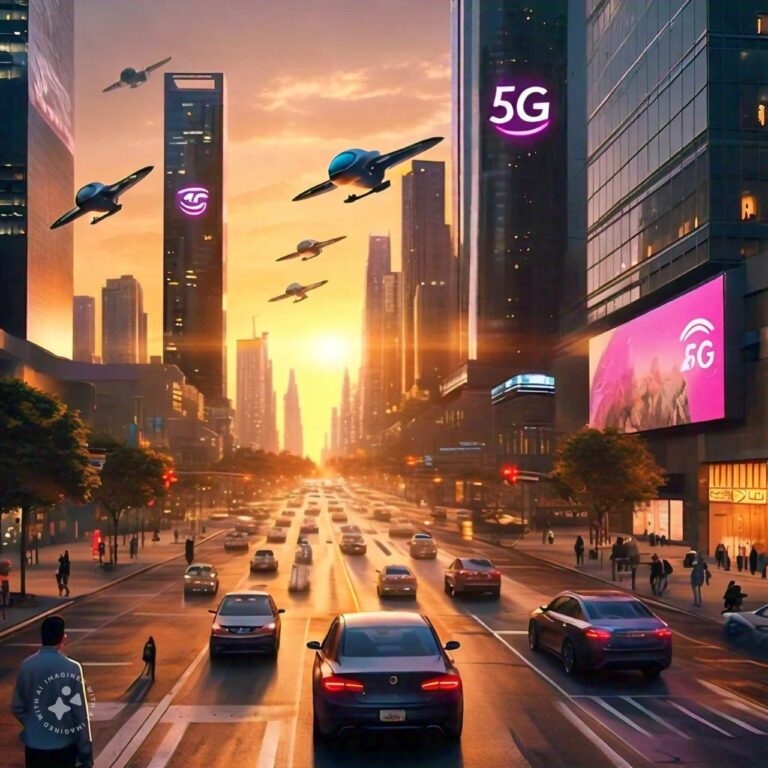Don't miss our holiday offer - up to 50% OFF!

The Future of Internet Technologies: What’s on the Horizon?
The Future of Internet Technologies: What’s on the Horizon?
The internet has revolutionized nearly every aspect of modern life, shaping how we communicate, work, and entertain ourselves. As technology continues to evolve at a rapid pace, the future of internet technologies promises even more groundbreaking changes. From advancements in connectivity to innovations in data management and security, several key trends and emerging technologies are set to redefine our online experiences. In this article, we’ll explore what lies ahead for internet technologies and how these developments could impact our lives.
1. The Expansion of 5G and Beyond
One of the most significant advancements in internet technology is the rollout of 5G networks. 5G promises vastly improved speeds, lower latency, and greater connectivity compared to its predecessors. This will enable a plethora of new applications, including more immersive augmented and virtual reality experiences, smarter cities with enhanced IoT connectivity, and improved telemedicine services.
However, the evolution doesn’t stop with 5G. Researchers and engineers are already looking toward 6G, which is expected to offer even more revolutionary features. 6G could potentially provide ultra-low latency and high bandwidth that supports advanced applications like real-time holography and seamless brain-computer interfaces. The future of connectivity will undoubtedly be characterized by faster and more reliable networks that will support a new wave of innovation.
2. The Rise of Quantum Computing
Quantum computing is another frontier that holds tremendous promise for the future of internet technologies. Unlike classical computers that use bits to represent data as 0s or 1s, quantum computers use quantum bits or qubits, which can represent and process multiple states simultaneously. This allows quantum computers to solve complex problems much faster than classical computers.
In the context of internet technologies, quantum computing could revolutionize fields such as cryptography, optimization, and data analysis. For instance, quantum algorithms could enhance data security by breaking current encryption methods and developing new ones. Moreover, quantum computing could optimize network traffic and resource allocation, leading to more efficient and resilient internet infrastructure.
3. Enhanced Artificial Intelligence and Machine Learning
Artificial Intelligence (AI) and Machine Learning (ML) are becoming increasingly integral to internet technologies. These technologies are already being used to power search engines, recommendation systems, and chatbots, but their future applications are even more exciting. AI and ML algorithms are expected to become more sophisticated, enabling more personalized and intuitive user experiences.
In the future, we can anticipate AI-driven advancements in areas such as natural language processing, where machines will better understand and interact with human language. Additionally, AI will likely play a crucial role in cybersecurity, helping to detect and respond to threats in real-time. As AI and ML technologies continue to evolve, they will drive innovations in countless applications across the internet.
4. The Internet of Things (IoT) and Smart Environments
The Internet of Things (IoT) refers to the growing network of interconnected devices that communicate and share data over the internet. This includes everything from smart home appliances to industrial sensors. The expansion of IoT is set to create smarter environments, where devices work together seamlessly to improve efficiency and convenience.
Looking ahead, IoT will likely become even more pervasive and integrated into daily life. We can expect advances in smart cities, where IoT technology will optimize traffic management, energy usage, and public services. In healthcare, IoT devices could monitor patients in real-time, providing valuable data for personalized treatment. The challenge will be managing the massive amounts of data generated and ensuring robust security and privacy measures are in place.
5. Advances in Blockchain Technology
Blockchain technology, best known for its role in powering cryptocurrencies like Bitcoin, is poised to impact a wide range of internet technologies. Blockchain’s decentralized and immutable nature makes it ideal for applications that require transparency, security, and trust.
Future developments in blockchain could lead to more widespread use in areas such as supply chain management, voting systems, and digital identity verification. For example, blockchain could enhance the traceability of products, ensuring their authenticity and ethical sourcing. Additionally, decentralized finance (DeFi) platforms could revolutionize traditional financial systems by offering more accessible and transparent financial services.
6. Privacy and Data Security Innovations
As the internet continues to evolve, so too do concerns about privacy and data security. With increasing amounts of personal and sensitive information being shared online, ensuring that data remains secure and private is more critical than ever. Future internet technologies will need to address these concerns head-on.
Innovations in privacy and data security will likely include more advanced encryption techniques, such as homomorphic encryption, which allows data to be processed and analyzed without being decrypted. Additionally, developments in decentralized identity management and privacy-preserving technologies will empower users to have greater control over their personal information. Regulatory frameworks and standards will also play a crucial role in shaping how data privacy is managed in the future.
7. The Evolution of Digital Communication
The way we communicate online is constantly evolving, and future technologies will bring even more transformative changes. Advances in virtual and augmented reality (VR and AR) are expected to create new forms of digital communication, allowing for more immersive and interactive experiences.
For instance, VR could enable virtual meetings and social interactions that feel almost as real as face-to-face communication. AR could overlay digital information onto the physical world, enhancing collaboration and information sharing. As these technologies mature, they will likely become integral to how we connect with others and interact with digital content.
8. Green Internet Technologies
As concerns about climate change and environmental impact grow, there is an increasing focus on making internet technologies more sustainable. Green internet technologies aim to reduce the carbon footprint of digital infrastructure and operations.
Future developments may include more energy-efficient data centers, the use of renewable energy sources, and innovations in hardware design that minimize resource consumption. Additionally, advancements in software optimization and network management can contribute to reducing the environmental impact of internet technologies. The push toward greener technologies will be essential for balancing the benefits of the internet with its ecological footprint.
Conclusion
The future of internet technologies is poised to be incredibly dynamic and transformative. From the expansion of connectivity through 5G and beyond to the rise of quantum computing and advancements in AI, the next decade will bring a wave of innovations that reshape our digital experiences. As these technologies evolve, they will offer new opportunities and challenges, requiring us to stay adaptable and proactive in addressing the implications for privacy, security, and sustainability.
As we look ahead, one thing is clear: the internet will continue to be a driving force behind progress and change, shaping the way we live, work, and connect with the world. By staying informed and engaged with these emerging technologies, we can better prepare for the exciting future that lies ahead.



